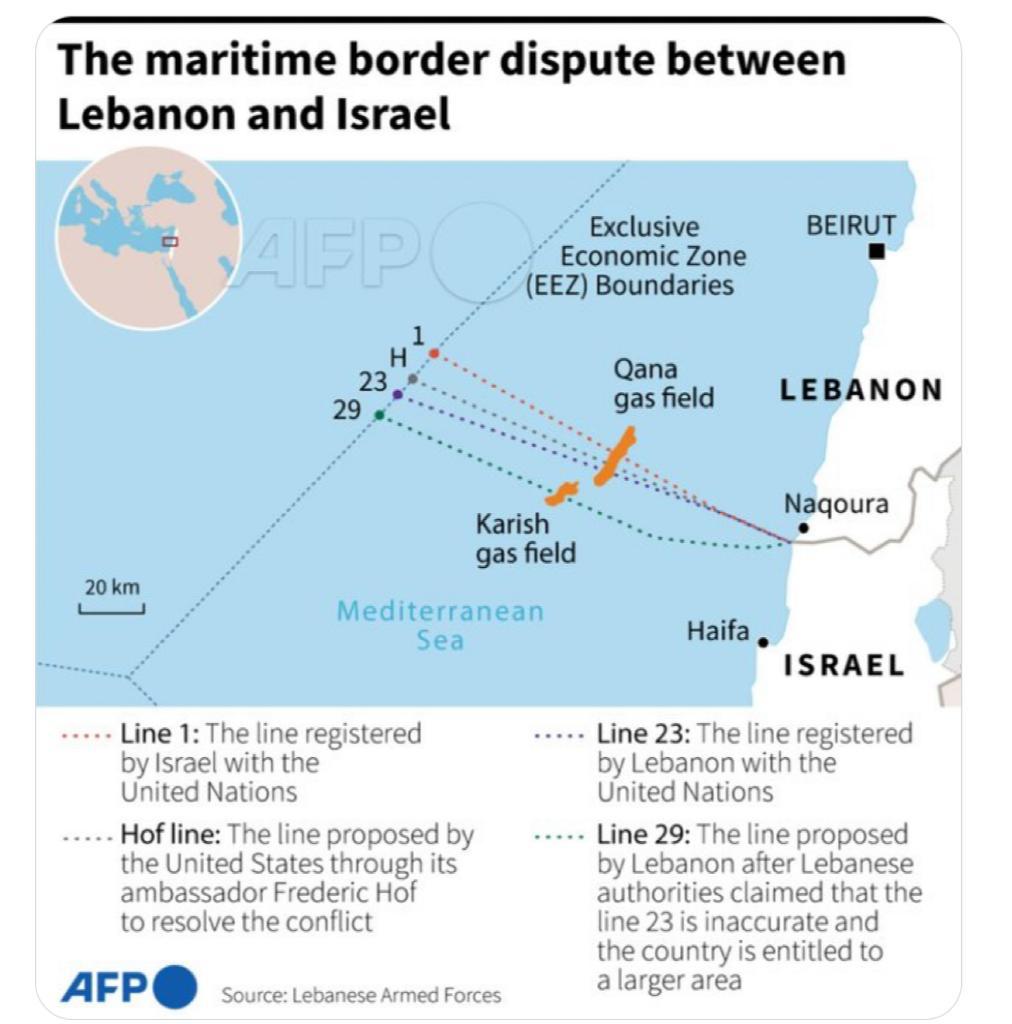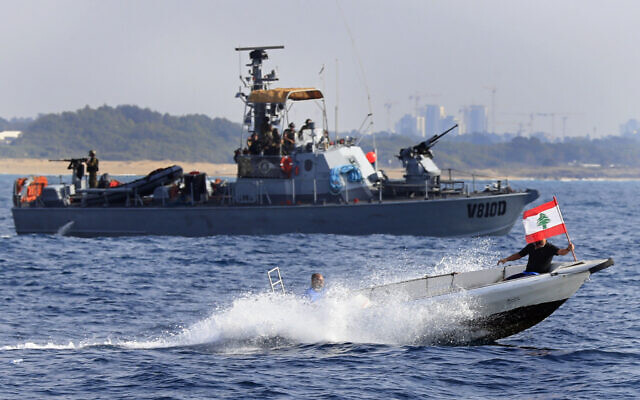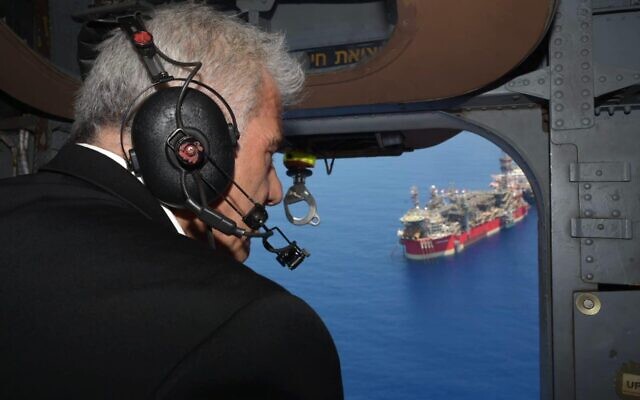- Jerusalem negotiator says new document meets ‘all our demands,’ protects ‘Israel’s security interests’; Beirut’s lead negotiator also says concerns addressed
Israel said Tuesday morning that a “historic” deal with Lebanon to resolve a long-running maritime border dispute over gas-rich Mediterranean waters was close, after a US-drafted proposal met Israeli “demands.”
“All our demands were met, the changes that we asked for were corrected. We protected Israel’s security interests and are on our way to an historic agreement,” Eyal Hulata, the national security adviser and the lead negotiator at the talks, said in a statement.
His comments came after Lebanon received an updated draft of a US-brokered maritime agreement with Israel that satisfied its previous concerns and could imminently lead to a “historic deal,” Beirut’s top negotiator told Reuters.
“If everything goes well, Amos Hochstein’s efforts could imminently lead to a historic deal,” Bou Saab told the news agency, referring to the Biden administration’s energy envoy who has led the negotiations between Jerusalem and Beirut for the past 15 months.
Hochstein was engaged in intensive talks for the past week after he submitted what at the time was described as a final proposal aimed at settling a dispute over control of a series of gas fields off the coast of Israel and Lebanon — two countries officially at war and with no recognized maritime boundary between them.
A deal would put to bed a long-running dispute over some 860 square kilometers (330 square miles) of the Mediterranean Sea, covering the Karish and the Qana gas fields.
While details of the agreement have not been formally publicized, officials said that last week’s proposal granted Jerusalem international recognition of its buoy-marked boundary five kilometers off the coast of the northern town of Rosh Hanikra, which Israel established in 2000. After that, Israel’s border will follow the southern edge of the disputed area known as Line 23.
Lebanon will enjoy the economic benefits of the area north of Line 23, including the Qana gas field, though a senior Israeli official briefing reporters on the deal said that Jerusalem will receive compensation for giving up rights to Qana, a portion of which will lie in what the agreement recognizes as Israeli waters.
While Jerusalem indicated openness to last week’s proposal, it was swiftly rejected by Lebanon, which reportedly has reservations over officially recognizing the buoy-marked boundary established by Israel. Prime Minister Yair Lapid’s office has subsequently made clear that it will not back off from this demand though.

Lebanon also is said to have opposed the previous draft’s requirement for Israel to receive a share of the revenues from potential gas produced at Qana.
Saab — the Lebanese negotiator — did not reveal the details of Hochstein’s latest amendments to the proposed maritime border, but it is believed to be related to both the buoy-boundary and the Qana gas field.
Last Thursday, Hebrew media reported that the director of Israel Energy Ministry told ministers at a cabinet meeting that estimates on how much natural gas could be extracted from Qana — the reservoir at the center of a maritime dispute — were far less than initially thought.

The revelation appeared to be an attempt by the ministry director to convince wary ministers to get on board with the US-brokered maritime agreement by emphasizing that Israel will only be compromising on a reservoir that may offer a very limited profit while receiving international recognition control over other reservoirs in the Mediterranean that are far more profitable.
The White House declined to confirm its submission of an updated proposal to Israel and Lebanon on Monday night, but a National Security Council spokesperson said Hochstein “continues his robust engagement to bring the maritime boundary discussions to a close. We remain in close communication with the Israelis and Lebanese.” Advertisement
A senior State Department official told Al Arabiya English that the US is “so close” to reaching a deal, adding that “the alternative is war.”
After a phone call with Hochstein on Sunday, Lebanese President Michel Aoun expressed optimism on Monday about finalizing a deal “within days.”
“The negotiations went a long way and the gaps were closed over the last week,” he said.

On Saturday, Israel’s security establishment gave Energean a green light to start testing the Karish pipeline, with full operations slated to begin within weeks. Israel has insisted it will not wait for a deal, but has only allowed Energean to take preliminary steps thus far.
Hezbollah chief Hassan Nasrallah has repeatedly threatened that his Lebanese terror group will strike Israel if it begins gas exploration at Karish before a maritime agreement is reached. In more recent rounds of talks, Lebanon began claiming ownership of Karish in addition to Qana. The demand has been largely dismissed, with Israel insisting that its control over Karish is non-negotiable.
Israel and Lebanon never agreed to demarcate their border on land either, keeping to a UN-enforced ceasefire “Blue Line” instead, and thus leaving their offshore exclusive economic zone disputed. The lack of a maritime border had not been a major issue until a decade ago, when a gas discovery bonanza began in the eastern Mediterranean, potentially reshaping the region’s economic future.
Successive US administrations have sought to broker a maritime agreement, with Hochstein leading the talks during the Obama administration as well. The effort was picked up several years later when Donald Trump was president but made little progress.
First published in Times of Israel





